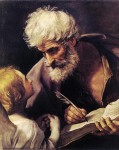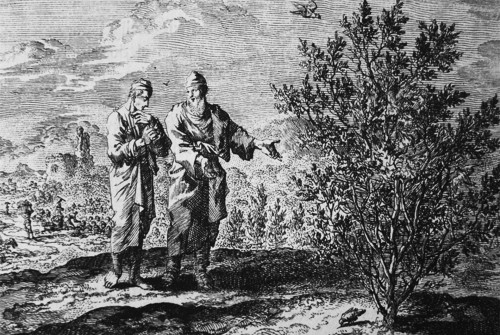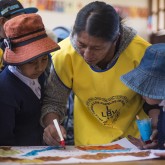Mustard Seed and Better Times

Matthew
We are going through a time of transformation in the world that is both radical and turbulent in many ways and which demands of us a superior capacity for facing up to all types of obstacles. This is how I started yet another talk on the radio. I went on saying: I am not referring to a neurotic stampede, because there are people who rush around and get nowhere. I am talking here about a systematic and courageous preparation for better times, which were always desired but hitherto not properly achieved by Humanity. . . . What is perhaps still missing is perspicacity and perseverance with regard to certain basic teachings that Jesus, the Divine Prophet, abundantly and hopefully conveys to us. A good example is found in the Parable of the Mustard Seed, in which a man plants a small seed and, despite being tiny, it blossoms, grows, and becomes a leafy tree, so that birds draw close to it and make their nests in its branches:
The Parable of the Mustard Seed
Jesus (Matthew 13:31 and 32)
31 Jesus told them another parable: “The kingdom of heaven is like a mustard seed, which a man took and planted in his field.
32 Though it is the smallest of all seeds, yet when it grows, it is the largest of garden plants and becomes a tree, so that the birds come and perch in its branches.”

The Parable of the Mustard Seed
The sower had, let us say, a prophetic vision, because he had knowledge of the extraordinary value contained in the little seed and its consequent future. This is one of the lessons that Jesus wants to convey to us in this parable. The opposite would be to leave the tiny grain lying on the path and there abandoning it without it germinating. So when we are unaware of the power of the Divine Word, we risk kicking the seed and despising the great fortune that God offers us, thus harming the future. Now, what do we learn today if not that those who possess information and access to communication own the world? . . .
We immediately see that the seed kicker is uninformed. Let us imagine what happens to those who do not know the Gospel and the Apocalypse, preferably in Spirit and Truth under the light of the New Commandment of Christ the King. How many opportunities they miss! Not considering this is being ill-advised.
All spiritual and human endeavors, from the modest to the most outstanding, were once small, like a new year that is just beginning. It may have begun as a family dialogue, a work meeting, an intuition . . . And if the new idea is cultivated according to evangelical and apocalyptic humanitarian principles, the benefits to society will be countless.

The comments do not represent the views of this site and are the sole responsibility of their authors. It denied the inclusion of inappropriate materials that violate the moral, good customs, and/or the rights of others. Learn more at Frequently asked questions.